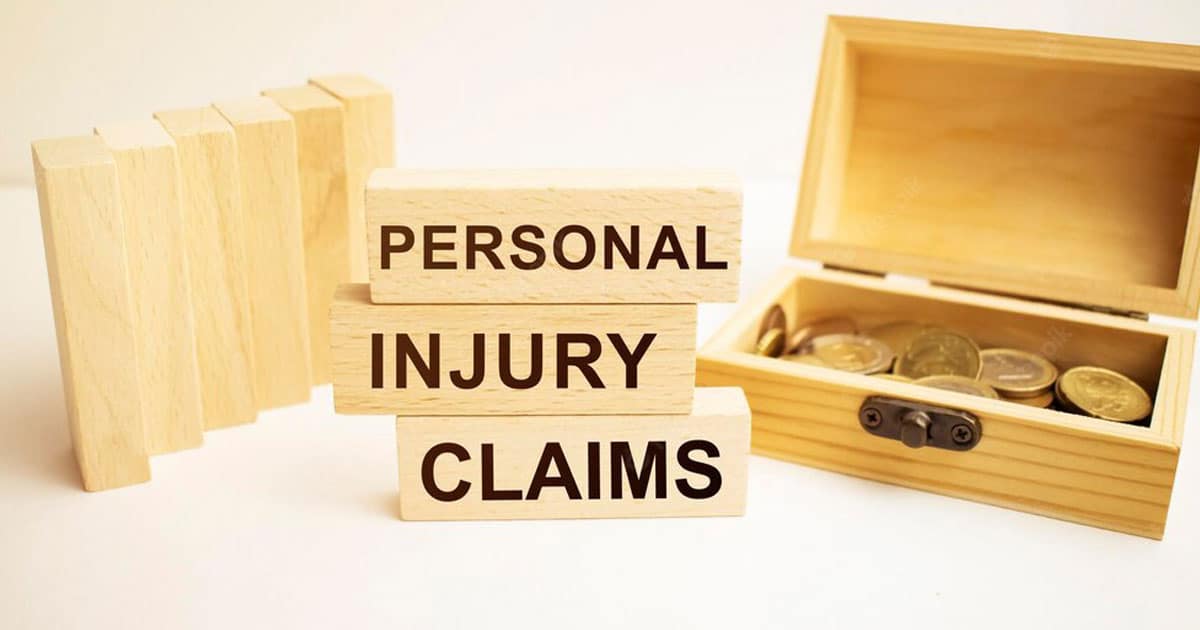Personal injury claims are the best way to get compensation for the injuries and damages caused by someone else’s wrongdoing or negligence. When you are injured in an accident, you can file a personal injury claim to initiate the claim process.
Filing a personal injury claim is a challenging task. There are several factors that may impact the outcome of your case, such as the evidence, the severity of your injuries, the legal process, and the tactics of the insurance firms. So, it is necessary to learn more about personal injury law to increase your chances of receiving a favorable and fair settlement.
To help you receive the highest amount of compensation for your personal injury claim, here are six things to consider.

Get a medical checkup
After an accident, it is crucial to get medical treatment immediately. It is important to follow the doctor’s advice even if your injuries can heal on their own. A medical checkup helps you recover faster, but it also serves as proof of your injuries. A leading Nebraska personal injury lawyer (or one local to you) can then use this proof to strengthen your case. You must avoid any delays in receiving medical treatment. It may increase doubts about the causation or seriousness of your injuries.
Secure evidence
It is necessary to preserve evidence related to your personal injury accident. This includes capturing videos and photos of the property damage, the location, the injuries, and other relevant things. You must also gather the names and contact details of the eyewitnesses. You should also safely store all relevant records and documents of your medical expenses, pain and suffering, lost income, and so on. You will then need to speak with a lawyer to help you put a case together. If you do not have a lawyer currently, you can use services such as Law Karma to help you find the best one for your situation.
Consider your claim’s value
Most personal injury victims make the mistake of settling for less. To ignore this, you should evaluate your claim is such a way that it covers all the losses and damages that you have sustained in the accident. It must cover economic damages, such as medical expenses, lost income, property damage, and future expenses. It also includes non-economic damages such as emotional distress, pain and suffering, loss of consortium, and loss of enjoyment of life. You must also keep track of ongoing medical needs, reduced earning capacity, and permanent disabilities.
Explain why the offer did not meet expectations
When you get an offer that is unfair or too low, you must not just refuse it without giving a proper reason. You must explain why the offer is insufficient and offer evidence to support your answer. For instance, you can point out the seriousness of your suffering and pain, the severity of your injuries, the loss of quality of your life, and other relevant factors that improve the value of your personal injury claim. You must also be prepared to counter any defenses or arguments that the insurance firm may use to decrease or deny your claim.
Avoid being impatient
Another big mistake that most victims make is agreeing to the initial offer that the insurance firm makes. This is generally a low-ball offer. The insurance firm’s main objective is to pay you as little as possible and close your case quickly. You must not be too eager to settle. Negotiate for a higher amount. You must also contact a skilled and experienced personal injury attorney from a well-established law firm like Floyd Hunter, who can advise you on the best legal action and represent your interests.
Don’t postpone filing your case immediately
You must not wait too long to file a personal injury case. All states have a statute of limitations that sets a timeframe for filing a personal injury case after an accident. If you miss this deadline, you may lose your legal right to file a case and recover fair compensation. You must act immediately and file your case before time runs out. You must also be aware that filing a personal injury case does not mean that you have to go through the trial process. Many personal injury cases are settled out of court through mediation or negotiation. For expert advice and assistance in navigating the legal process, contacting Andrew & Andrew Solicitors Ltd can help you ensure your case is filed on time and handled professionally, whether in or out of court.
In conclusion, the six pointers mentioned above can help you get a fair amount as compensation. Every personal injury case is unique and may need different legal strategies and approaches.
It is highly recommended that you hire an experienced personal injury attorney who can support you throughout the whole process and also fight for your legal rights.
